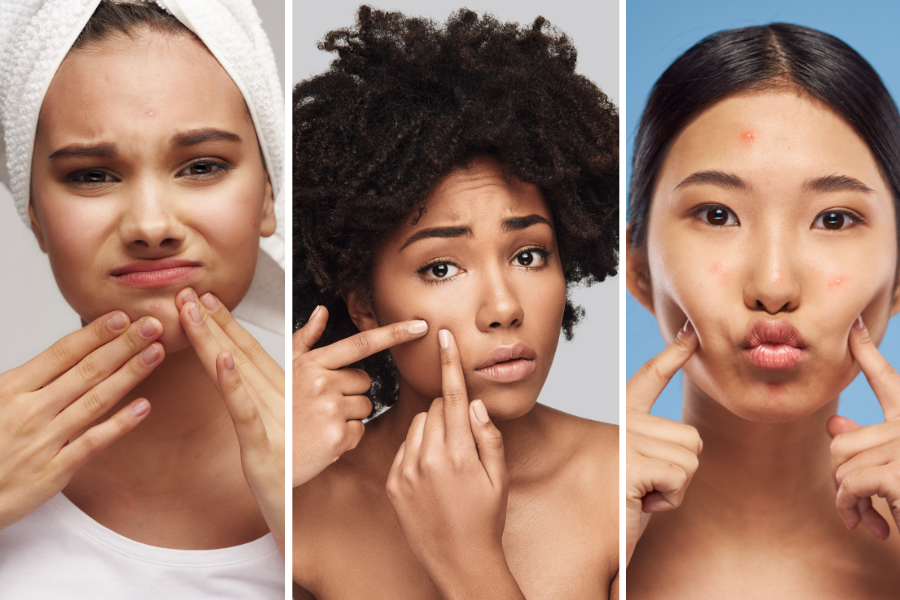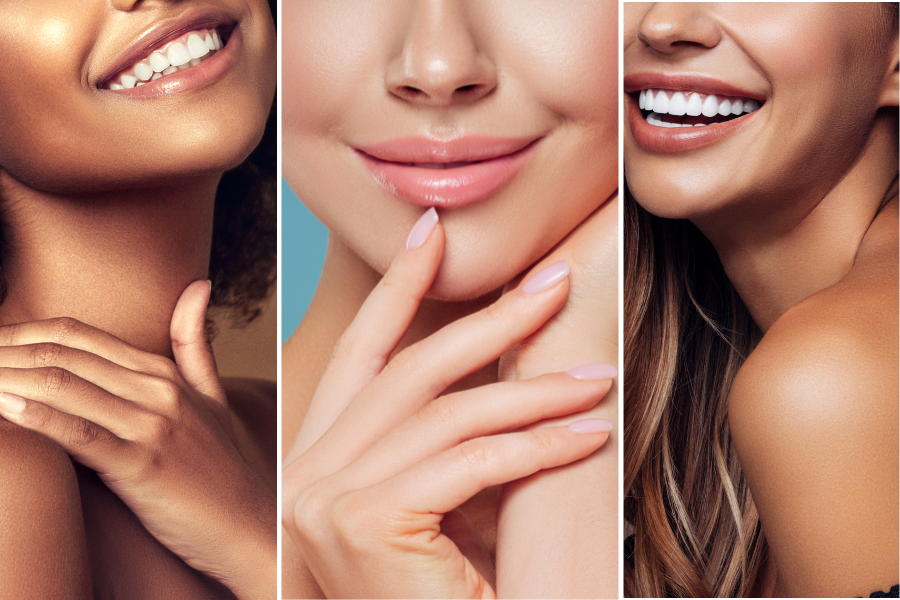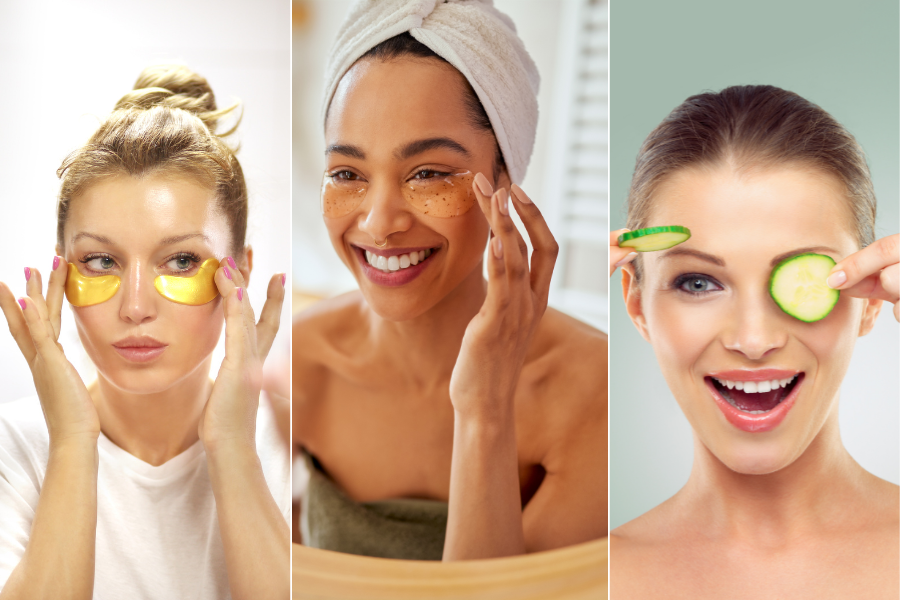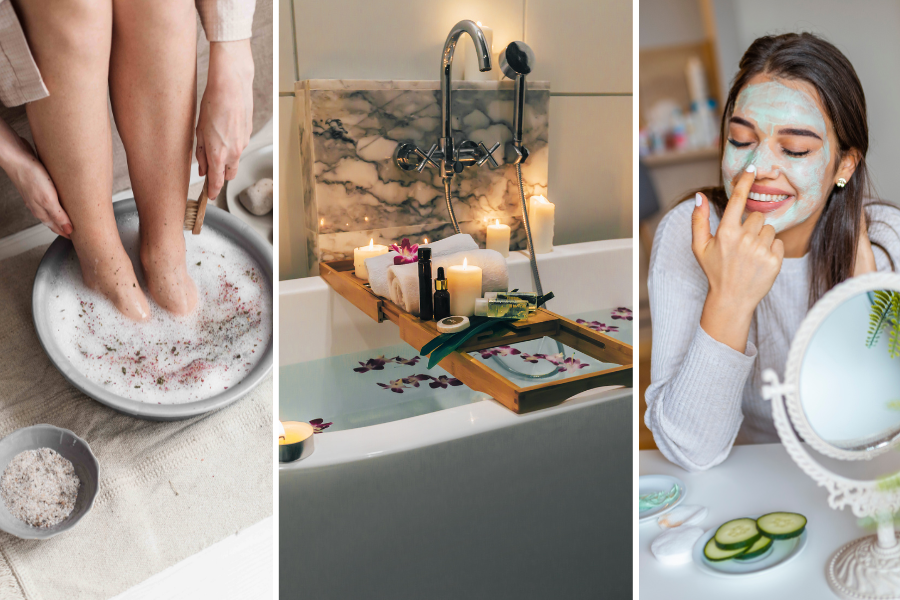Acne can be a frustrating and confidence-shaking skin issue that affects people of all ages. Whether you’re dealing with occasional breakouts or persistent acne, finding effective techniques to reduce and prevent acne is essential for maintaining clear, healthy skin. With the right skincare routine and reducing acne techniques, lifestyle adjustments, and targeted treatments, you can manage acne and improve your complexion. This guide will provide you with practical tips and proven techniques for reducing acne and achieving the clear skin you’ve always wanted. Ready to take control of your skin and say goodbye to acne? Let’s dive into these reducing acne techniques!
Reducing Acne Techniques
Understanding the Causes of Acne
Acne is a common skin condition that can be influenced by a variety of factors. Understanding the underlying causes of acne is the first step in effectively managing with reducing acne techniques.
Common Triggers and Underlying Causes of Acne
Acne can be triggered by several factors, including:
- Hormonal Fluctuations: Hormonal changes, particularly during puberty, menstruation, or pregnancy, can lead to increased oil production and acne.
- Dietary Factors: Certain foods, such as those high in sugar or dairy, may exacerbate acne by triggering inflammation or hormone imbalances.
- Stress: Stress can increase cortisol levels, which in turn may stimulate oil glands and contribute to acne flare-ups.
- Genetics: A family history of acne can increase your likelihood of developing the condition.
- Skincare and Makeup Products: Using products that are not suitable for your skin type can clog pores and lead to breakouts.
The Role of Hormones, Diet, and Stress in Acne Development
- Hormones: Androgens, a group of hormones, increase during adolescence and can cause the sebaceous glands to enlarge and produce more sebum, leading to clogged pores and acne.
- Diet: A diet high in refined sugars, dairy, and processed foods can trigger inflammation and worsen acne.
- Stress: Stress does not directly cause acne, but it can aggravate existing conditions by triggering the release of stress hormones that increase oil production.
How to Identify Your Specific Acne Triggers
Identifying your acne triggers is essential for effective treatment:
- Keep a Skin Diary: Track your diet, stress levels, skincare routine, and acne flare-ups to identify patterns and potential triggers.
- Consult a Dermatologist: A dermatologist can help you pinpoint specific triggers through a combination of medical history, examination, and possibly tests.
- Elimination Process: Try eliminating potential triggers one at a time, such as certain foods or products, to see if your skin improves.
Effective Skincare Routine for Reducing Acne
A well-structured skincare routine is vital for managing acne and maintaining clear, healthy skin.
The Importance of Cleansing: Choosing the Right Cleanser for Your Skin Type
Cleansing is a crucial step in preventing acne:
- Gentle Cleanser: Choose a gentle, non-comedogenic cleanser that suits your skin type to remove dirt, oil, and makeup without irritating your skin.
- Twice Daily: Cleanse your face twice a day, especially after sweating, to keep pores clear and reduce the likelihood of breakouts.
- Avoid Over-Cleansing: Over-cleansing can strip the skin of its natural oils, leading to increased oil production and potential breakouts.
How to Exfoliate Without Irritating Acne-Prone Skin
Exfoliation helps to remove dead skin cells, but it must be done carefully:
- Chemical Exfoliants: Opt for gentle chemical exfoliants like salicylic acid, which can penetrate the pores and help prevent clogging without the abrasive effects of physical exfoliants.
- Frequency: Limit exfoliation to 1-2 times per week to avoid irritation and over-drying the skin.
- Patch Test: Always do a patch test before introducing a new exfoliant to your routine.
Tips for Moisturizing While Managing Oil Production
Moisturizing is essential, even for oily and acne-prone skin:
- Oil-Free Moisturizers: Choose a lightweight, oil-free, and non-comedogenic moisturizer to hydrate the skin without clogging pores.
- Hydration Balance: Moisturizers with ingredients like hyaluronic acid can help maintain hydration without contributing to excess oil production.
- Daily Application: Apply moisturizer daily after cleansing and exfoliating to keep your skin barrier healthy and resilient.
Reducing Acne Techniques with Targeted Treatments
Targeted treatments can help reduce acne by addressing the specific causes of breakouts.
The Role of Topical Treatments: Benzoyl Peroxide, Salicylic Acid, and Retinoids
Topical treatments are effective for treating mild to moderate acne:
- Benzoyl Peroxide: This antibacterial agent helps reduce acne-causing bacteria and inflammation. It’s particularly effective for inflamed pimples.
- Salicylic Acid: A beta-hydroxy acid that exfoliates the skin and helps unclog pores, making it ideal for blackheads and whiteheads.
- Retinoids: Retinoids promote cell turnover and prevent clogged pores. They are effective for treating comedonal acne and preventing future breakouts.
How to Use Spot Treatments Effectively
Spot treatments can quickly address individual pimples:
- Apply Sparingly: Use a small amount directly on the pimple, avoiding the surrounding skin to prevent irritation.
- Consistency: Apply spot treatments consistently, as directed, to reduce inflammation and speed up the healing process.
- Choose the Right Treatment: Depending on the type of acne, select a treatment with benzoyl peroxide for inflamed acne or salicylic acid for clogged pores.
Exploring Prescription Options for More Severe Acne
For severe or persistent acne, prescription treatments may be necessary:
- Topical Retinoids: Stronger than over-the-counter options, these can be prescribed by a dermatologist for more severe cases.
- Oral Medications: Oral antibiotics or hormonal treatments (like birth control) may be prescribed to reduce inflammation and balance hormones.
- Isotretinoin: For severe, cystic acne that doesn’t respond to other treatments, isotretinoin (Accutane) may be prescribed under close medical supervision.
The Impact of Diet on Acne
Diet plays a significant role in the development and management of acne.
Foods That Can Trigger or Worsen Acne
Certain foods are known to exacerbate acne:
- Dairy: Milk, cheese, and other dairy products can trigger acne due to hormones present in milk.
- Sugary Foods: High-glycemic foods, like sweets and sugary drinks, can spike insulin levels, leading to increased oil production and acne.
- Processed Foods: Foods high in refined carbohydrates and unhealthy fats can contribute to inflammation and worsen acne.
The Benefits of an Anti-Inflammatory Diet for Clear Skin
An anti-inflammatory diet can help reduce acne:
- Fruits and Vegetables: Rich in antioxidants and vitamins, they help fight inflammation and promote healthy skin.
- Omega-3 Fatty Acids: Found in fish, flaxseeds, and walnuts, omega-3s help reduce inflammation and may improve acne.
- Whole Grains: Whole grains provide fiber and essential nutrients, which support overall health and can reduce acne triggers.
How to Incorporate Acne-Fighting Foods into Your Meals
Incorporating acne-fighting foods into your diet can improve your skin:
- Balanced Diet: Include a variety of fruits, vegetables, lean proteins, and whole grains in your meals.
- Healthy Fats: Add sources of omega-3 fatty acids, like salmon or chia seeds, to your diet regularly.
- Limit Triggers: Reduce intake of dairy, sugar, and processed foods to help prevent acne flare-ups.
Managing Stress to Prevent Breakouts
Managing stress is crucial for preventing acne, as stress can trigger flare-ups.
The Connection Between Stress and Acne Flare-Ups
Stress has a direct impact on acne:
- Cortisol Levels: Stress increases cortisol levels, which can stimulate oil production and lead to acne.
- Inflammation: Stress can also trigger inflammation, exacerbating existing acne and leading to more severe breakouts.
- Skin Barrier: Chronic stress can weaken the skin barrier, making it more prone to irritation and acne.
Stress Management Techniques to Reduce Acne
Incorporating stress management techniques can help reduce acne:
- Mindfulness Meditation: Regular mindfulness practice can reduce stress levels and improve overall well-being, which in turn may reduce acne flare-ups.
- Exercise: Physical activity helps to lower stress and improve circulation, which can benefit your skin.
- Time Management: Effective time management reduces stress by helping you stay organized and avoid last-minute pressures.
How to Incorporate Relaxation Practices into Your Daily Routine
Relaxation practices can be integrated into your daily life to manage stress:
- Breathing Exercises: Take a few minutes each day to practice deep breathing, which can calm your mind and reduce stress.
- Yoga: Incorporate yoga into your routine to combine physical activity with mindfulness, reducing stress and improving skin health.
- Evening Wind-Down: Establish a relaxing evening routine, such as reading or taking a warm bath, to unwind before bed and promote better sleep.
The Role of Hydration in Clear Skin
Hydration is essential for maintaining healthy skin and reducing acne.
Why Staying Hydrated Is Essential for Reducing Acne
Hydration plays a critical role in skin health:
- Skin Function: Proper hydration helps maintain the skin’s barrier function, keeping it resilient and less prone to breakouts.
- Toxin Removal: Water aids in flushing out toxins from the body, which can reduce the likelihood of clogged pores and acne.
- Oil Balance: Hydrated skin is better able to regulate oil production, preventing excessive dryness or oiliness.
Tips for Increasing Water Intake Throughout the Day
Increasing your water intake can significantly benefit your skin:
- Carry a Water Bottle: Keep a water bottle with you throughout the day to remind yourself to drink regularly.
- Infuse with Flavor: Add natural flavors like lemon, cucumber, or mint to your water to make it more enjoyable.
- Set Reminders: Use phone alarms or apps to remind you to drink water at regular intervals.
How Hydration Affects Skin Health and Acne Prevention
Adequate hydration contributes to overall skin health:
- Elasticity and Firmness: Hydrated skin maintains better elasticity and firmness, reducing the appearance of fine lines and promoting a healthy glow.
- Healing: Proper hydration supports skin repair and healing, helping to clear acne faster and reduce scarring.
- Balanced Skin: Hydration helps balance the skin’s moisture levels, reducing the risk of both dryness and excess oil.
Avoiding Common Skincare Mistakes
Avoiding common skincare mistakes is crucial for managing acne and maintaining clear skin.
Over-Washing and Over-Exfoliating: Why Less Is More
Over-washing and over-exfoliating can do more harm than good:
- Skin Irritation: Washing your face too frequently can strip away natural oils, leading to irritation and increased oil production.
- Barrier Damage: Over-exfoliating can damage the skin barrier, making it more susceptible to acne and inflammation.
- Balanced Routine: Stick to washing your face twice daily and exfoliating 1-2 times per week to maintain a healthy balance.
The Dangers of Using Harsh Products on Acne-Prone Skin
Using harsh products can aggravate acne:
- Alcohol-Based Products: Avoid products with high alcohol content, as they can dry out and irritate the skin.
- Strong Fragrances: Fragrance-laden products can cause irritation, especially for sensitive, acne-prone skin.
- Choose Gentle Formulas: Opt for gentle, non-comedogenic products that are specifically formulated for acne-prone skin.
How to Avoid Clogging Pores with Makeup and Skincare Products
Preventing clogged pores is key to reducing acne:
- Non-Comedogenic Products: Choose makeup and skincare products labeled as non-comedogenic, meaning they won’t clog pores.
- Lightweight Formulas: Opt for lightweight, oil-free foundations and moisturizers that allow your skin to breathe.
- Proper Removal: Always remove makeup thoroughly before bed to prevent clogged pores and breakouts.
Incorporating Lifestyle Changes for Acne Management
Lifestyle changes can significantly impact your skin health and help manage acne.
The Importance of Sleep and Its Impact on Skin Health
Sleep is essential for healthy skin:
- Repair and Regeneration: During sleep, the skin undergoes repair and regeneration, helping to heal acne and improve overall skin health.
- Hormonal Balance: Adequate sleep helps regulate hormones, reducing the risk of acne flare-ups.
- Stress Reduction: Quality sleep reduces stress, which in turn can help prevent stress-related acne.
How to Avoid Environmental Factors That Contribute to Acne
Environmental factors can contribute to acne:
- Pollution: Airborne pollutants can settle on the skin, clogging pores and leading to breakouts. Cleanse your face thoroughly after exposure to pollution.
- Humidity: High humidity can increase oil production, leading to clogged pores. Use oil-control skincare products in humid environments.
- Sun Exposure: Excessive sun exposure can worsen acne and cause hyperpigmentation. Always use a broad-spectrum sunscreen to protect your skin.
Tips for Maintaining a Balanced Lifestyle That Supports Clear Skin
A balanced lifestyle is key to managing acne:
- Healthy Diet: Maintain a diet rich in fruits, vegetables, and whole grains to support skin health.
- Regular Exercise: Engage in regular physical activity to improve circulation, reduce stress, and support overall well-being.
- Mindful Living: Practice mindfulness and relaxation techniques to reduce stress and promote a healthy, balanced lifestyle.
Exploring Natural Remedies for Acne
Natural remedies can complement your acne treatment routine, offering gentle and effective options.
The Benefits of Tea Tree Oil, Aloe Vera, and Other Natural Treatments
Natural remedies can be effective for managing acne:
- Tea Tree Oil: Known for its antibacterial properties, tea tree oil can reduce acne-causing bacteria and inflammation.
- Aloe Vera: Aloe vera soothes and hydrates the skin, reducing redness and promoting healing of acne lesions.
- Honey: Honey has natural antibacterial and anti-inflammatory properties that can help reduce acne and soothe the skin.
How to Safely Incorporate Natural Remedies into Your Skincare Routine
Incorporating natural remedies requires caution:
- Patch Test: Always perform a patch test before applying any natural remedy to your face to ensure you don’t have an allergic reaction.
- Dilute Oils: Essential oils like tea tree oil should be diluted with a carrier oil (such as jojoba or coconut oil) before application.
- Consistency: Use natural remedies consistently, but be patient, as they may take longer to show results compared to conventional treatments.
When to Use Natural Treatments Versus Conventional Acne Products
Understanding when to use natural treatments versus conventional products is important:
- Mild Acne: Natural remedies may be sufficient for mild acne, helping to reduce inflammation and promote healing.
- Severe Acne: For moderate to severe acne, conventional treatments like benzoyl peroxide or prescription medications may be more effective.
- Combination Approach: Consider combining natural remedies with conventional treatments for a holistic approach to acne management.
When to Seek Professional Help for Reducing Acne Techniques
Sometimes, over-the-counter treatments aren’t enough, and professional help is needed.
Recognizing When Over-the-Counter Treatments Aren’t Enough
Know when to seek professional advice:
- Persistent Acne: If your acne persists despite over-the-counter treatments, it may be time to consult a dermatologist.
- Severe Breakouts: Severe acne, such as cystic acne, often requires prescription-strength treatments that are not available over the counter.
- Scarring: If you’re experiencing scarring or significant hyperpigmentation from acne, a professional can help you explore more advanced treatment options.
The Benefits of Consulting a Dermatologist for Persistent Acne
A dermatologist can offer specialized care:
- Customized Treatment Plans: Dermatologists can provide personalized treatment plans based on your skin type, acne severity, and lifestyle.
- Access to Prescription Medications: They can prescribe stronger treatments, such as topical retinoids, oral antibiotics, or hormonal therapies.
- Monitoring and Support: A dermatologist can monitor your progress and make adjustments to your treatment plan as needed.
Exploring Advanced Treatments: Chemical Peels, Laser Therapy, and More
For more severe or resistant acne, advanced treatments may be necessary:
- Chemical Peels: Chemical peels exfoliate the skin, unclog pores, and reduce acne scarring. They are performed by professionals and tailored to your skin’s needs.
- Laser Therapy: Laser treatments can reduce acne-causing bacteria and improve the appearance of acne scars.
- Microneedling: This procedure promotes collagen production and can help reduce the appearance of acne scars and improve overall skin texture.
By understanding when to seek professional help, you can ensure that you’re receiving the most effective treatment for your acne, leading to clearer, healthier skin.
Reducing Acne Techniques Wrap Up:
Reducing acne requires a comprehensive approach that includes a consistent skincare routine, targeted treatments, and lifestyle adjustments. By understanding your skin’s needs and avoiding common pitfalls, you can effectively manage acne and achieve clear, healthy skin. Remember, patience and consistency are key when it comes to treating acne. Start today by implementing these techniques and watch as your skin begins to improve. Ready to take the first step toward clear skin? Follow this guide and discover the strategies that work for reducing acne and enhancing your complexion.
This post was all about Reducing Acne Techniques.
Other Posts You Might Like:





